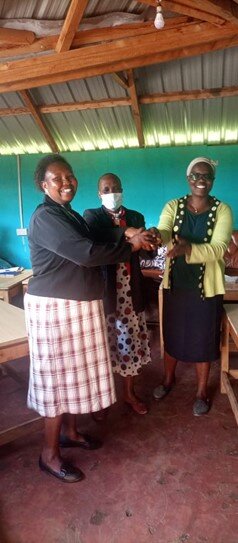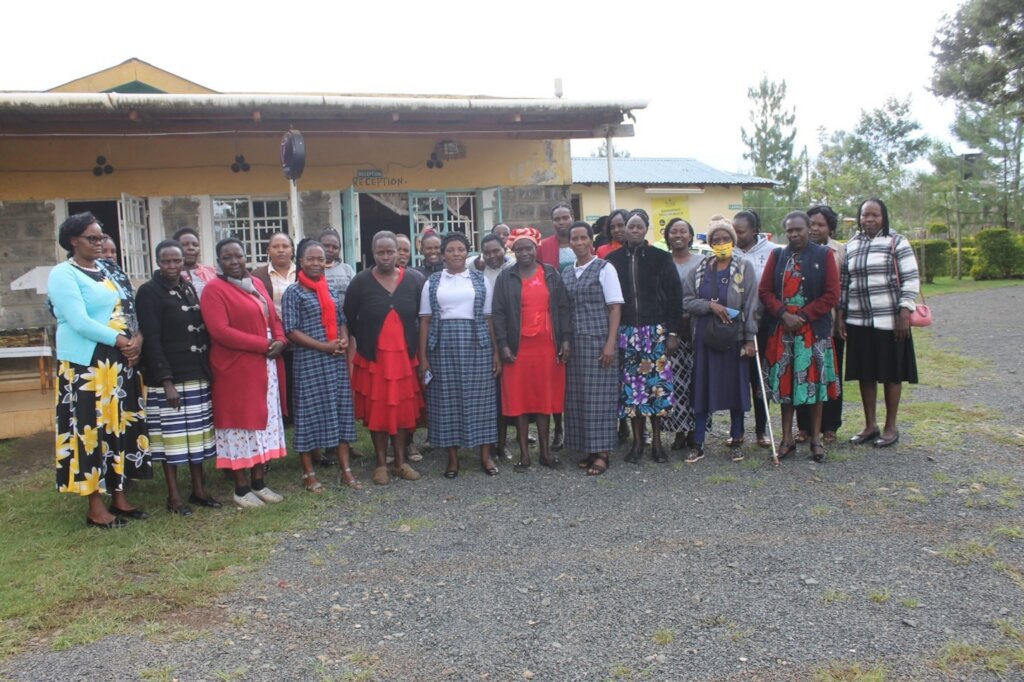By Deborah Smith | WMI Treasurer
Exactly a year ago. WMI received an email from a Kenyan woman seeking a loan. We get this type of email every day. It is impossible to fulfill such individual requests but something about her email resonated – she said she was a woman with a social enterprise working with rural farmers in Northern Kenya. We’d just begun experimenting with agricultural loans at our BCDC hub in western Uganda so this sparked our interest. Agricultural loans are timed to the growing cycle (as opposed to our set six-month loans distributed quarterly) and tend to be riskier because of unknowns such as seed viability, weather and pestilence. There were many questions. How was she planning to make these loans? What were the risks she faced? And so, we began an email conversation with the woman, Everlyne Cherobon. Where did our mutual interest lie, how could our program be adjusted to aid these women? What experience could she bring to the table?
We invited Everlyne to come to our largest loan hub in Buyobo, Uganda to learn about our program, which she and her colleagues did at the end of March. Each group was impressed by what the other was doing. Olive Wolimbwa, our Buyobo Director, was also interested in experimenting with agricultural loans. Everlyne liked WMI’s structure and longevity. By the end of the meeting, Olive had agreed to bring her training staff to Eldoret, Kenya to train the first borrowers. Everlyne would go back, explain the program to her group, and select the pioneer borrowers. The group organized and registered as a Community Based Organization under Kenya law, a necessary step for WMI to make a grant to the group, and elected officers.
In July, three trainers from our Buyobo hub journeyed by bus, taxi (enduring a four hour wait for the taxi to fill), and private automobile to Eldoret to train 40 women in business skills and WMI administrative and leadership skills. Olive and her trainers observed “that the 40 borrowers whom we trained came from urban area and others from neighboring villages around town. When I asked Everlyne, she said she planned it like that. She wanted each borrower after knowing the good of WMI, how it operates and how it empowers a rural woman to go to their home area where they are born to mobilize ladies in their localities, that the 40 borrowers are the ambassadors.
The first twenty women at this new loan hub received their loans in August (Blue Group) followed by twenty more who received loans in September (Red Group). The September and October repayments due for both groups have been paid.
Women in the area are extremely grateful for the loans and training. Eldoret is primarily a food growing region and many of the women needed the loans for seeds and agricultural inputs to maximize their yields. Everlyne Cherobon, the head administrator, reported that:
1. Visits were made on a weekly basis and most of the women visited were found to be doing their businesses as promised except for a few who changed their business plan. They changed because the first plan did not work out and we were comfortable with developing a new plan.
2. They are striving to put into practice the business skills they learned especially record keeping. A few were found not to be keeping records. Their explanation was that they could not find the time to do so because they are overwhelmed by responsibilities of housekeeping, caring for school going children, doing business, and serving the needs of their husbands.
Determined that her program be successful, Everlyne is pleased that the women who changed their business plans had the foresight to see their original plans would not be successful. She is also planning to conduct a record-keeping re-training workshop to ensure the borrowers keep good records. It’s this kind of leadership that makes the WMI loan program successful.
WMI is thrilled to have such a successful launch of it’s newest loan hub. We are just completing our 15th year, having served over 25,000 women, and feel confident we are running sustainable programs across East Africa. Won’t you please take a moment to make a donation so that we may continue our work?
Thank you and have a happy holiday season!
The Ladies of Women’s Microfinance Initiative
By Deborah Smith | WMI Board Member and Treasurer
By Rachel Blackmore | WMI - Tanzania Leadership Team
Project reports on GlobalGiving are posted directly to globalgiving.org by Project Leaders as they are completed, generally every 3-4 months. To protect the integrity of these documents, GlobalGiving does not alter them; therefore you may find some language or formatting issues.
If you donate to this project or have donated to this project, you can receive an email when this project posts a report. You can also subscribe for reports without donating.
Support this important cause by creating a personalized fundraising page.
Start a Fundraiser
